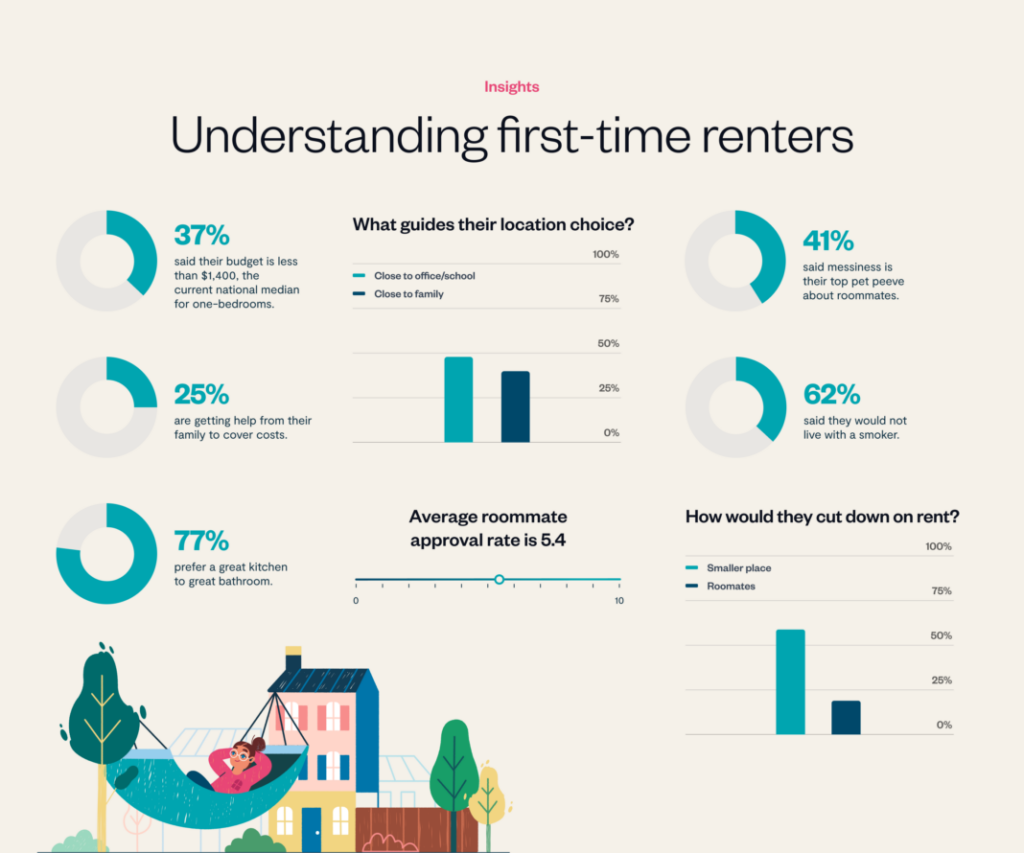Everyone remembers their first apartment, but members of Generation Z embarking on the hunt after graduating high school or college are entering a rental market never seen before in the United States. Vacancy rates are at all-time lows, which makes finding an available unit difficult, and rents are rising at historic rates in almost every market in the country. Throw in two years of a pandemic, and today’s first-time renters are entering adulthood under anything but typical circumstances.
How have these abnormal circumstances affected their preferences and approaches to finding a place? To find out, we surveyed 700 people searching for their first apartment. The results show a group of new renters who are cash strapped, wary of roommates, and searching for something new.
In one of the more surprising results, 53 percent of respondents said they preferred to live in a rural area instead of an urban city. One in three respondents said they were considering a “nomad lifestyle,” or living in short-term rentals and moving from place to place. Despite the growing popularity and broad adoption of work-from-home policies, 47 percent said proximity to an office or school was the top priority when choosing a location.
When asked what their budget is, 37 percent of respondents gave a number below the national median one-bedroom rent of $1,400, and a quarter of first-time renters said they’re getting help from family to cover expenses. To cut costs, respondents preferred getting a smaller apartment (59 percent) to getting roommates (19 percent). A full 69 percent said they plan to furnish their apartment with hand-me-down or second-hand furniture.
First-time renters appear deep in their feelings about roommates. When asked to rate their roommate on a scale from one to 10, the average score across all respondents was 5.4. Forty-one percent said messiness was their biggest pet peeve regarding roommates, and the next highest was noisiness at 14 percent. First-time renters have no patience for smokers either, with 61 percent saying they would not live with someone who smoked.




